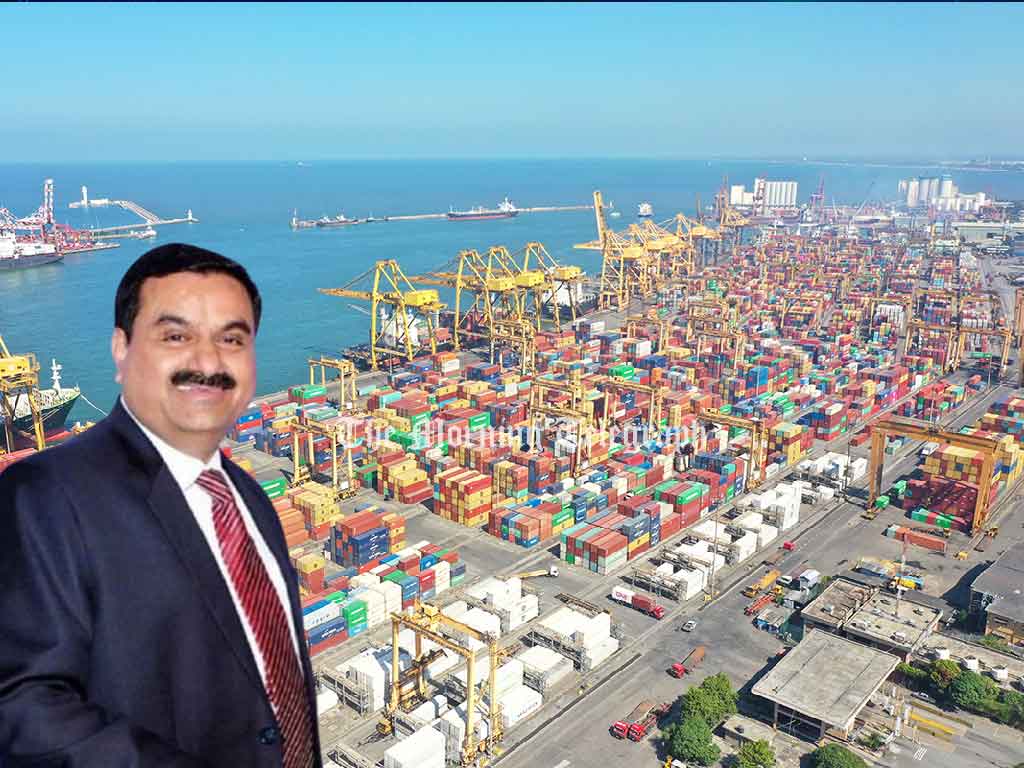
The Board of Investment (BOI) of Sri Lanka has revealed that the government stands to lose $207 million in tax revenue due to extensive concessions granted to the Adani Group for the $650 million Colombo Port Western Container Terminal project. This was disclosed during a recent Committee on Public Finance meeting held on January 8.
The BOI clarified that the first phase of the project, requiring $289 million of the total $650 million investment, is already underway. This phase is expected to be completed by March 2025, after which the port terminal will commence operations. The remaining investment will fund the second phase of the project. The project aims to enhance port infrastructure and improve Sri Lanka’s status as a regional shipping hub.
Breakdown of the Tax Revenue Loss
The $207 million in tax revenue loss includes $104 million in customs duties and other tax exemptions granted to the Adani Group. These concessions were made under the premise of promoting foreign direct investment and accelerating infrastructure development. However, concerns have been raised about whether the long-term economic benefits of the project will outweigh the immediate fiscal sacrifices.
When questioned by the Committee on Public Finance, BOI officials could not provide a precise estimate of the financial benefits the Treasury might receive over the 25-year tax concession period. They did, however, indicate that the annual revenue from the Western Container Terminal project is expected to range between $130 million and $140 million. The Sri Lanka Ports Authority, which holds a 15% stake in the project, will receive a portion of these revenues in dividends.
Financing Strategy and Ownership Structure
Initially, the Adani Group had sought $553 million in financing for the project from the United States International Development Finance Corporation (DFC). However, in December 2024, Adani announced that it would fully finance the project through its internal resources and capital management plan, withdrawing its request for DFC funding.
The ownership of the Western Container Terminal is divided among three entities:
- Adani Group: 51%
- John Keells Holdings: 34%
- Sri Lanka Ports Authority: 15%
This ownership structure was designed to balance foreign investment with domestic stakeholder involvement.
Economic and Strategic Implications
While the project is expected to bolster Sri Lanka’s maritime logistics capabilities, the significant loss of tax revenue during its implementation has drawn criticism. Economic analysts have questioned whether the government negotiated favorable terms, especially given the scale of the concessions granted.
Critics also argue that Sri Lanka’s precarious fiscal situation requires a more cautious approach to granting tax holidays and other incentives. With the country recovering from a severe economic crisis, the opportunity cost of losing $207 million in tax revenue could impact public spending on essential sectors such as health, education, and infrastructure.
Additionally, the project has geopolitical implications. The Adani Group, a prominent Indian multinational, is heavily investing in Sri Lanka’s port sector, raising concerns in China, which has made substantial investments in the Hambantota Port and the Colombo Port City. Balancing the interests of India and China while protecting national economic priorities remains a delicate challenge for Sri Lanka.
Calls for Greater Transparency
In light of the BOI’s disclosure, public finance watchdogs and opposition parties have called for greater transparency regarding the terms of the agreement with Adani. They urge the government to provide a detailed analysis of how the project’s long-term economic gains will compensate for the immediate loss in tax revenue.
The project’s progress will be closely watched as Sri Lanka attempts to navigate its economic recovery while balancing its fiscal priorities and strategic alliances.




